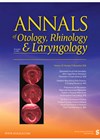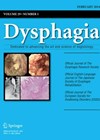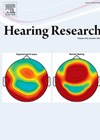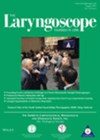
Journal Reviews
A viable solution for isolated post-nasal drip?
This retrospective, single-centre case series looked at a cohort of patients with postnasal drip as their primary symptom. Exclusions were patients with chronic rhinosinusitis. The interventions offered were temperature-controlled radio frequency (TCRF) ablation of the posterior nasal nerve delivered by...
Tonsillectomies are a pain in the neck!
You thought tonsilitis was bad? Having your tonsils removed, now that’s a hard pill to swallow. Very well, you’ll no longer have to fear the CENTOR, but how do we make recovery as pain-free as possible? Pantabtim and colleagues set...
Persistent postural-perceptual dizziness: a functional neuro-otologic disorder
Persistent postural-perceptual dizziness (PPPD) is a neuro-otological disorder that is the most common cause of chronic vestibular syndrome. It is not a purely structural or psychiatric disease but a functional disorder. The authors reviewed the literature to summarise the diagnostic...
Diagnosis and management of acute sensorineural hearing loss: a Japanese perspective
In this paper, the authors set out the clinical guidelines to standardise diagnosis and treatment of acute sensorineural hearing loss in Japan. They categorised acute sensorineural hearing loss into five disorders: idiopathic sudden sensorineural hearing loss (iSSNHL), acute low-tone sensorineural...
Dysphagia services in the emergency department
The emergency department acts as the first port of call for many individuals with wide-ranging diagnoses and conditions, several of whom may potentially present with dysphagia. It is not a usual environment in which speech and language therapists regularly work,...
Genetics of IP-III
The authors provide a literature review of the genetic basis and clinical features of incomplete partition (IP)-type III. The condition is seen typically in males and is due to mutation in the POU class 3 homeobox 4 (POU3F4) gene which...
Audiological symptoms in children with 18q deletion
18q deletion is a rare genetic condition that occurs in approximately one in 40,000 live births. Those born with this deletion often are born with a range of symptoms, including developmental delay, facial dysmorphism, autoimmune disorders and hearing loss. The...
Where is it?
Humans’ ability to process sound is a multi-faceted phenomenon. It is a marvel which likely changes through our ageing process and is influenced by a myriad of factors. This paper examines the particulars of the dimensions of sound processing –...
Remote living: can we learn anything about telehealth use during the pandemic in Australia?
Healthcare services in Australia have been using telehealth to reach remote areas for many years prior to the Covid-19 pandemic. It is estimated that 10% of the Australian population have no access to primary healthcare within a 60-minute drive. This...
Factor favouring the need for revision FESS in chronic sinusitis with polyps – a multivariate analysis including phenotypes
Chronic rhinosinusitis with polyposis is a type 2 inflammation with risks of recurrence and need for revision operations. This is known to depend on the endotype and phenotype factors. This is a retrospective study of 212 patients. Of these, 112...
Post-Covid dizziness disability
An estimated 750 million people worldwide were affected by Covid-19. A significant proportion have been left with long-term symptoms for which the World Health Organization has proposed the term ‘post-Covid condition’ (PCC). Dizziness is but one of the symptoms. Dizziness...
How rare is vocal fold paralysis after spinal and epidural anaesthesia – should we be more concerned?
The authors present an unusual case of right vocal fold paralysis. Their patient was a 38-year-old woman who experienced new onset dysphonia following neuraxial anaesthesia (NA) for a caesarean section. Flexible nasendoscopy showed a right VFP with fixation in the...
















